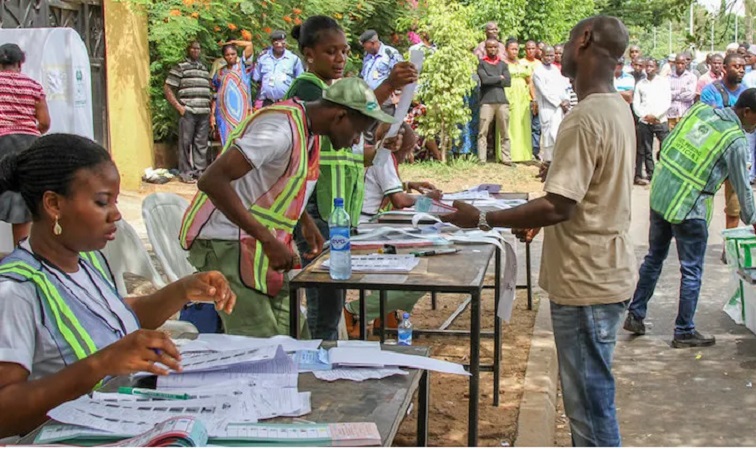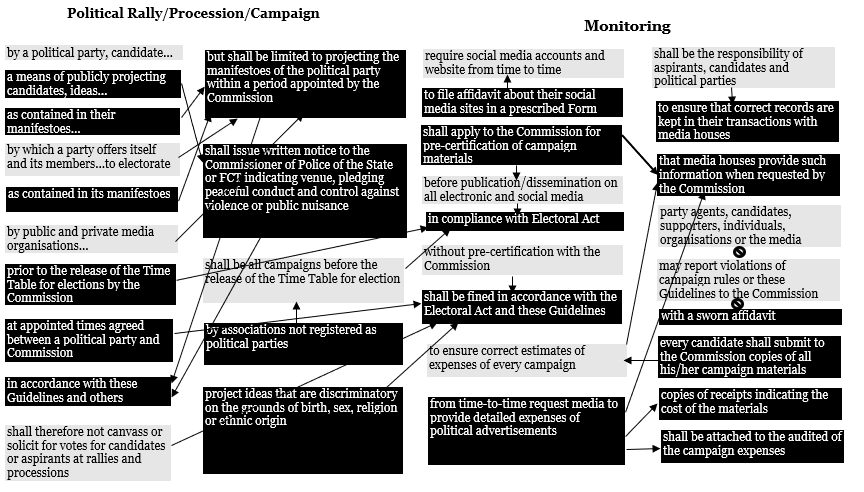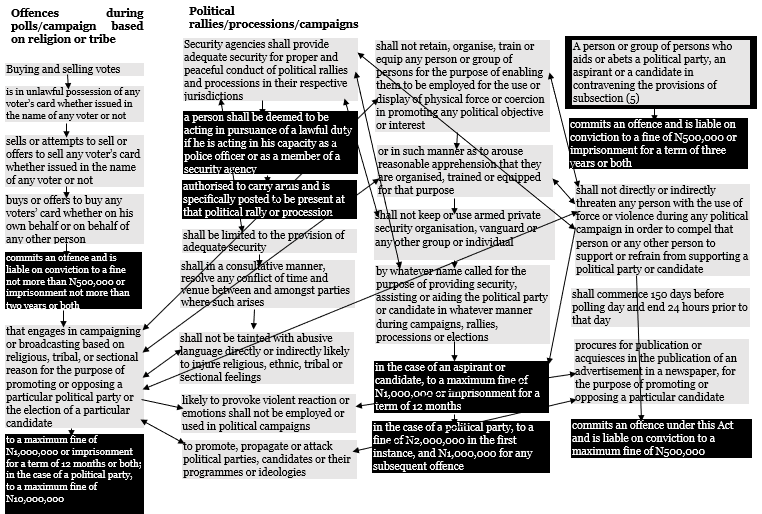
State and non-state actors advocated for meaningful political and electoral changes after the 2015 general elections, taking into account the many concerns and difficulties that defined local and national elections in Nigeria between 1999 and 2015. The interested stakeholders engineered and carried out a number of initiatives between 2015 and 2021. Nigerians have a number of laws, from the national parliament to the executive branch of government, that were intended to strengthen political and electoral processes in advance of different state governorship elections scheduled before the general elections in 2023 as well as the year’s elections.
However, our analyst notes that the Electoral Act’s sections and guidelines, as well as the electoral body’s template for managing political campaign activities, remain paper tigers given the actions taken by political parties, candidates, and their supporters prior to and during the governorship elections that were held ahead of the general elections. This stance is supported by the evidence that political figures and the people who support them have engaged in flagrantly illegal conduct.
Both the Act and the Guidelines, as expected, provide goals and means for addressing flaws and issues identified with the past elections. For example, analysis shows a close link between the goals and means developed for campaign activities/types and the electoral commission’s monitoring of such activities/types (see Exhibit 1, where Goals are in grey boxes and Means are in black boxes).
Register for Tekedia Mini-MBA edition 19 (Feb 9 – May 2, 2026): big discounts for early bird.
Tekedia AI in Business Masterclass opens registrations.
Join Tekedia Capital Syndicate and co-invest in great global startups.
Register for Tekedia AI Lab: From Technical Design to Deployment (next edition begins Jan 24 2026).
Analysis reveals that the value of goals and means in campaign activities/types in the INEC’s Campaign Guidelines exceeded 70%. This implies that the goals and means in the two primary components of campaign rules for political parties, candidates, and their followers are mutually exhaustive and interrelated. Further analysis reveals that 54.8% of campaign monitoring concepts or guides in the electoral body’s guidelines were expressly pulled from campaign offences indicated in the 2022 Electoral Act, while 8.1% were drawn from campaign rules in the same Act.
Exhibit 1: Interconnectivity of Appropriateness and Sufficiency of Goals and Means of Ensuring Better Election Campaign in INEC’s Campaign Guideline

Exhibit 2: Interconnectivity of Appropriateness and Sufficiency of Goals and Means of Ensuring Better Election Campaign in Electoral Act 2022

From the Electoral Act to the INEC’s Campaign Guideline, it has been established that political parties, candidates, and supporters should not begin campaign activities before to the specified time (see Exhibit 1 and 2). Sections and procedures for developing messages about candidates and political parties and communicating them across communication channels without causing division in the country are also included in the legal and policy documents.
However, our observational analysis of political parties, candidates, and supporters of the main parties for the 2023 presidential election shows that actors are breaching Section 97 subsection 1, which criminalizes religious or tribal campaigning. According to the section, “A candidate, person or association that engages in campaigning or broadcasting based on religious, tribal, or sectional reason for the purpose of promoting or opposing a particular political party or the election of a particular candidate, commits an offence under this Act and is liable on conviction.” Paragraph a-b further specifies punishment for the violators. It states that: “(a) to a maximum fine of N1,000,000 or imprisonment for a term of 12 months or both; and (b) in the case of a political party, to a maximum fine of N10,000,000.”
In order to forward their agendas ahead of the general elections, parties, candidates, and supporters have largely turned to religion. Actors have attacked the personalities and beliefs of presidential candidates in both social and conventional media. Although it wasn’t the main factor in the Osun 2022 election, the governorship candidates’ personalities were disparaged. However, criticizing the leading opposition candidate (Senator Ademola Adeleke) due to his alleged lack of education was against the law and the campaign standards set forth by the electoral commission.
Our analyst notes that the campaign atmosphere would be hostile for the general elections in 2023 because this appeared during the most recent governorship election without any sanctions or prosecutions being brought against those responsible. Parties, candidates, and their followers would widely disseminate false and deceptive information that might incite physical violence throughout the nation. The ways to achieve the precise objectives indicated for controlling and sustaining the campaign environment on virtual platforms and in physical locations must therefore be reviewed by the concerned parties. Where the means are obviously inadequate, they should be reformulated in order to achieve mutual benefit.



